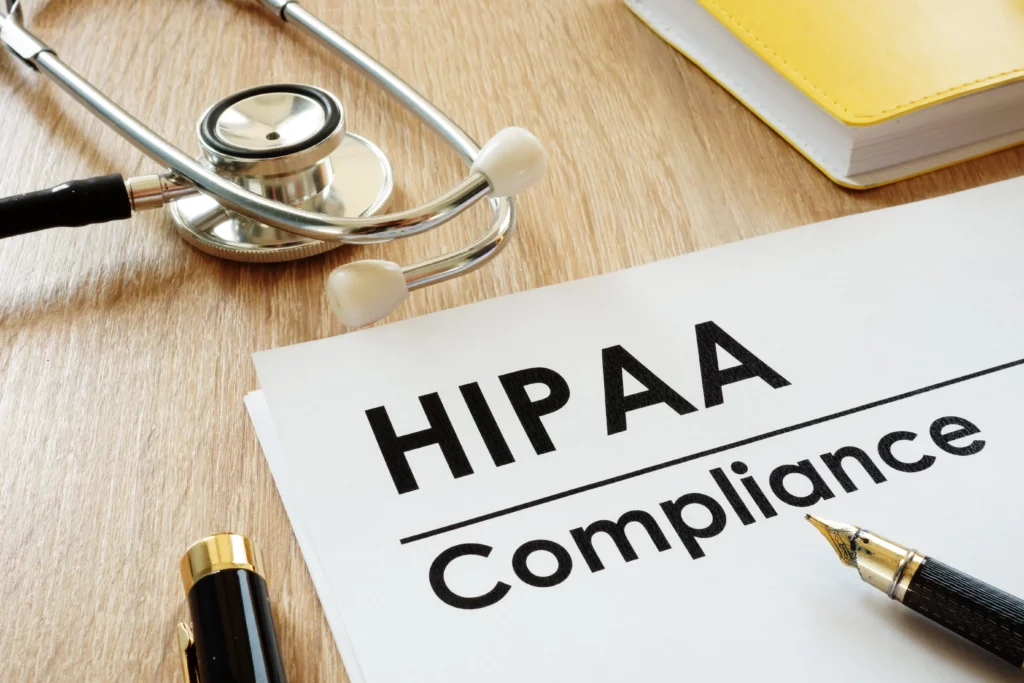When Does a Non-Compliance with HIPAA Requirements Affect an Individual Practitioner?
Max Health provides a cloud-based application. This program is wholly integrated with sophisticated modules, such as Electronic Health Records (EHR) that are HIPAA compliant, Telemedicine, Practice Management, Medical Billing, Revenue Cycle Management (RCM), and Patient Engagement tools.
The damage to your private practice from a data breach might be catastrophic. The Breach Notification Rule stipulates that notifying all impacted patients and fixing the situation would take significant time and resources. Revenue and patient trust might both suffer because of this. Depending on the seriousness of the infraction, a range of sanctions may apply. The Office for Civil Rights (OCR) at the Department of Health and Human Services and the attorney general in your home state may impose fines for civil rights violations.
Although OCR prefers to settle infractions via educational resources and other non-punitive means, they still have the authority to impose fines of up to $50,000 per violation in extreme situations. Medical Economics reports that an Arizona medical clinic with five doctors was fined $100,000 for violating patients’ privacy and security rights under the Health Insurance Portability and Accountability Act.
Typical Healthcare HIPAA Infractions
It is crucial for your private practice to be aware of potential HIPAA violation hotspots, such as:
- Laptops, tablets, cellphones, and thumb drives provide a lot of convenience to the practice environment but create a genuine hazard if lost or stolen. A breach or theft may occur if these gadgets are handled carelessly or insecurely.
- Patient’s Protected Health Information (PHI) should be encrypted and password-protected on all office equipment and devices. When hundreds or even thousands of patients are at risk, the penalty for a breach may be severe.
- Lack of proper training might occur when new team members are regularly added to the practice or when current office personnel is careless with routine, urgent tasks.
- Data breaches are the most often reported kind of HIPAA violation, and they affect every part of the healthcare system, from small clinics to large hospitals.
- Information Sharing: Even casual chatter might have far-reaching consequences. This is especially true in the medical field, as even off-duty chats concerning a patient’s health or personal information might compromise their confidentiality.
- Destruction of patient information: Just as doctors’ offices had to keep tabs on the safekeeping of paper records, so too do those responsible for today’s Electronic Health Records. Shredding paper records and wiping electronic devices clean of all patient data before disposal is recommended.

Keeping Your Private Practice Compliant with HIPAA: Some Actions You May Take
When it comes to preserving HIPAA compliance, vigilance is the most important watchword. The following are some actions that your private practice may take:
- Restriction of Access to Information considers who has to be present in locations where patient information is accessible. And places stringent restrictions on who may use the computers. For the sake of convenience, you should not let members of the team share devices or passwords.
- Reply to Requests for Personal Data Promptly Even if your practice has a lot to handle with day-to-day operations. Failing to respond to a patient’s request for personal data on time (typically within 30 days) violates HIPAA.
- Create and Enforce Security Protocols Lax attention to security is an open invitation to cyber thieves. Hence security protocols must be established and enforced.
- It is essential to do a risk assessment of your practice regularly to review your safety measures and make any necessary adjustments.
- Keep your software updated within the advised periods and ensure that all staff members frequently change their passwords.
- Pay particular attention to mobile devices so that, if they are misplaced or stolen. You can either delete the data or deactivate the device.
- HIPAA Training Schedule It is vital to have a regular HIPAA training schedule, at least once every three months. To keep everyone alert and informed of the implications of a breach.
Important Lessons to Keep Your Private Practice HIPAA-Compliant
Breach of patient confidentiality in the healthcare industry may be an expensive and morale-damaging infraction for a private business. To defend against data breaches, you should ensure that you have security measures in place. That your personnel receives regular training, and that your software complies with HIPAA standards.
Max Health provides a cloud-based application. This program is wholly integrated with sophisticated modules, such as Electronic Health Records (EHR). That are HIPAA compliant, Telemedicine, Practice Management, Medical Billing, Revenue Cycle Management (RCM), and Patient Engagement tools.


